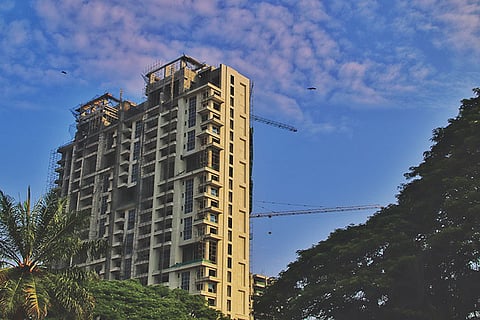

By Vivek Chandy and Jayantika Ganguly
It is common knowledge by now that the Supreme Court has, in its recent, much-lauded decision in Pioneer Urban Land and Infrastructure Limited vs Union of India, upheld the rights of homebuyers as ‘financial creditors’ for the purpose of the Insolvency and Bankruptcy Code, 2016 (IBC). So, an allottee under a real estate project now has the same rights as a bank/financial institution/lender with respect to a real estate developer.
But what does this actually mean for a homebuyer? It is unlikely that people (other than lawyers) would comb through a 186-page judgement to find out.
Let us say Dev books a new flat in an upcoming residential project ‘Heaven’ by X Developers, a renowned real estate group. Dev keeps paying the instalments on time, but X delays or defaults on its commitments. Thanks to the Supreme Court, Dev now has the right to file an insolvency application against X. He also gets to sit in the meetings of the ‘Committee of Creditors’ (which decides what is to be done with X) with the banks that granted loans to X. Dev gets to vote at these meetings, and has the right to be paid from the resolution plan (or liquidation proceeds, depending on how the situation ends) at par with X’s lenders.
However, things are rarely that simple in law. Dev needs to be a genuine buyer who has made all his payments on time, and there should be an actual, provable default on part of X and the National Company Law Tribunal (NCLT) will decide whether or not to admit Dev’s application, based on what both parties submit. Dev can file this application either on his own or jointly with some of the other allottees of ‘Heaven’.
Also, Dev needs to keep in mind that IBC is not a recovery mechanism; as the Supreme Court has repeatedly pointed out, it is the last resort. In the best-case scenario, Dev will have to wait a few months and then someone else will take over the project, complete the construction, and give him his flat (or compensate him for the amounts he has already paid). In the worst-case scenario, X will go into liquidation, whatever assets it has will be sold, and then Dev will stand in line with the other lenders to get paid. Dev also needs to remember that he will not get all his money back even in the best-case scenario. All creditors take a haircut, which is the loss you have to bear.
Now, Dev is morose, wondering why everyone was rejoicing at the Supreme Court’s verdict – isn’t this road paved with too much trouble? Unfortunately for him, insolvency is a depressing affair. Dev needs to understand that in the eyes of the law, X too is a person, (lawyers call X a ‘juristic person’).
However, IBC is not the only (or necessarily the best) remedy Dev has against X in case of delays and/or defaults. The Supreme Court has also pointed out that Dev has rights and remedies in consumer protection fora (we have a new law on this now) as well as under the Real Estate (Regulation and Development) Act (RERA Act), 2016. Also, IBC is an evolving statute open to legislative experiments towards finding the best solution – yes, the Supreme Court has recognized this, too.
Finally, Dev should never forget the golden rule of any sale – caveat emptor, or ‘buyer beware’.
Note: All views express are authors’ own. Vivek Chandy is Joint Managing Partner, while Jayantika Ganguly is Principal Associate at law firm J Sagar Associates.